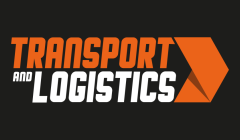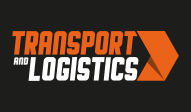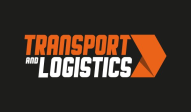The world of logistics is changing at an amazing pace, as the internet drives demand for ever more rapid deliveries.
On the one hand customers’ expectations of service are rising, while on the other they also expect clean air to breathe and clear roads to drive on.
These two diverse problems are increasingly coming head to head as traffic volumes increase – and Britain’s van fleet operators are very much caught right in the middle.
Until now, there has been little interaction between van manufacturers and the technology companies who offer logistics solutions, apart from a few tie-ups with telematics firms.
But now Mercedes-Benz has announced that it plans to bridge this gap with a new initiative called AdVANce, in which it aims to change from being purely a van manufacturer to becoming a total logistics provider, adding a host of technological innovations as factory-fit options to its vehicles.
The German firm has already spent 200m euros on this project and is promising much more to come. Meanwhile, it has taken on a team of 200 new staff across the globe who are tasked with inventing new ideas to help businesses deliver the goods.
VanUser travelled to the Mercedes-Benz Van Innovation Campus in Stuttgart to look at what will be on offer in the future and to speak about the new project with the firm’s global head of vans Volker Mornhinweg.
We also viewed the launch of a concept vehicle which had on board all the innovations that the company has invented so far and was powered by an electric motor.
Mornhinweg said: “2015 was a record-breaking year for us with 321,000 vans sold and we have set a record in the first six months of this year with sales up 21%. We are on top of our game and we don’t need to change. But the world is changing and we can be driven by it or drive it. We prefer to lead the parade.
“We live in exciting times and the internet is pushing us into a new age of connected mobility. By 2020, we will be totally different from the company you know today – not as a result of new models but through changes at the foundation of our firm.”
One of the problems with urban deliveries is that as cities get larger, congestion and pollution increase, so new ways are needed to get goods from A to B.
Mornhinweg said: “This opens up opportunities and challenges to business as traffic requires new infrastructure and distribution systems.
“Also digitalisation has changed the needs of individuals with e-commerce and deliveries are changing in a massive way. It has had a major impact on our business as customers expect goods to be delivered on time.
“How do we adapt to these developments? We are evolving our business to provide a holistic system to make the businesses of our customers as efficient as possible. We are also seeking to reduce emissions and noise to make urban transport more sustainable.
“It will lead to new products and services beyond the hardware of a van.
“Vehicles will be upgraded with advanced internet features. Onboard systems will collect data to make businesses more efficient. They will be able to view free loading space, detours will be transmitted to drivers’ navigation systems and in the end our customers will save time and money and offer better service to clients.
“Smart cargo space systems will put loads in the right place in the van and integrate with the rest of the van. We will have solutions for last mile delivery with drones and matching interfaces with vans to ensure the most efficient way of delivery. Vans will be mother ships and robots will go out like busy bees.
“This seems very far from our core product but as a full service provider, we can integrate those areas into our business strategy.”




